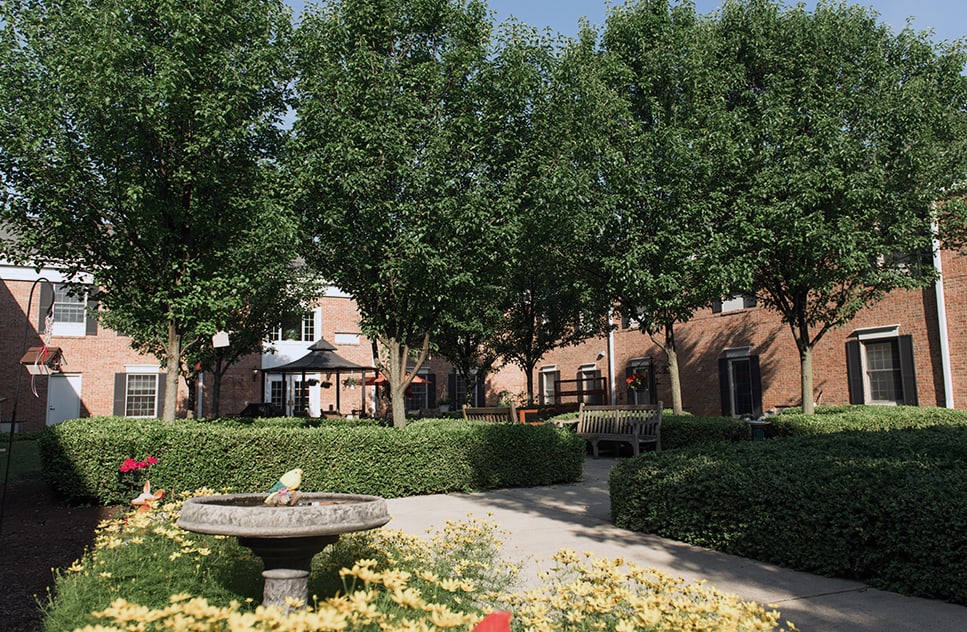Aging is a natural part of life, but keeping our minds sharp as we age is crucial. For older adults, habits that help maintain cognitive health may also help improve quality of life, reduce the risk of developing dementia, and foster social connections. All of these benefits can occur at home and with support from a memory care community.
One delightful and effective way to achieve this is through playing board games. There is some evidence that board games may help reduce cognitive decline and improve cognitive function. The exact benefits can vary from person to person though—as can many other aspects of managing cognitive health. That’s why our staff personalize our approach to memory care with the GEMS model.
What Exactly Is Cognitive Health?
Cognitive health refers to our ability to think, learn, and remember information. It also encompasses problem-solving skills, decision-making abilities, and social interaction.
There are several factors that can affect cognitive health, such as genetics, lifestyle, and environmental factors. While you can’t change the genetic factor, you can manage other factors to maintain your cognitive health.
Board Games & Cognitive Health in Seniors
When we think of board games, we often imagine fun, laughter, and friendly competition. But, simple activities, such as board games, are also powerful tools for cognitive stimulation. Board games require players to use memory, critical thinking, and social skills—all essential for maintaining cognitive health.
Memory Boosters
Board games often involve remembering rules, strategies, and previous moves, which helps to keep the mind active and engaged. Games like Scrabble or Sequence challenge players to recall words or patterns, thereby exercising short-term memory. Research has shown that engaging in mentally stimulating activities can lead to less cognitive decline.
Thinking Ability
Many board games require strategic planning and problem-solving. Games like Chess and Checkers demand foresight and the ability to anticipate opponents’ moves, which can improve thinking ability and thinking performance.
Social Interaction Builders

Playing board games is a social activity that encourages face-to-face social interaction, social skills, and social communication. Whether it’s a family game night or a community center event, these interactions can alleviate loneliness and depression. Social engagement is known to have a positive impact on mental health, making board games a wonderful way to connect with others.
Board Games for Seniors
Not all board games are created equal, especially when it comes to catering to older adults. The ideal games should be easy to learn, yet stimulating enough to keep players engaged. Here are some popular board games for older adults.
Scrabble
Scrabble is a classic word game that never goes out of style. It helps improve vocabulary, spelling, and memory. Plus, it’s a great way to learn new words and challenge your brain.
Sequence
Sequence is a combination of card and board games that is simple to understand but requires strategic thinking. Players aim to create a sequence of five in a row, making it a fantastic way to enhance cognitive skills.
Chess
Chess is a timeless game that exercises the brain like no other. It requires strategic planning, critical thinking, and anticipating your opponent’s moves. Despite its complexity, many older adults find it deeply rewarding.
Checkers
Checkers is easier to learn than other board games such as chess but still offers many cognitive benefits. It improves problem-solving skills at a relaxed pace, making it perfect for older adults.
Incorporating Board Games into Daily Life
Incorporating board games into daily life doesn’t have to be a daunting task. Here are some tips for caregivers and family members to encourage regular play.
Set a Routine
Designate specific times for board game sessions. This could be a weekly family game night or a daily afternoon activity. Consistency helps build a habit and gives everyone something to look forward to.
Start Simple
Begin with easy-to-learn games that don’t require extensive rule explanations. This makes sure that older adults can jump right in without feeling overwhelmed. Games like Connect Four or UNO are excellent starting points.
Make It Social
Invite friends, family, or neighbors to join the fun. Social interaction can add another layer of enjoyment and encourages regular participation. You could even start a small board game club within your community or your loved one’s community.
Where to Find Board Game Groups & Activities
You can find various events, board game groups, and activities in your local community.
Community Centers
Senior community centers host regular game nights and activities tailored for older adults. It’s a great place to meet new people and enjoy a variety of board games.
Libraries
Public libraries often organize board game afternoons and workshops. Check their event calendar for upcoming sessions and join in the fun.
Social Clubs
Consider joining local social clubs or meetup groups that focus on board games. These clubs provide a relaxed environment to play games and make new friends.
Senior Living Communities
For older adults in communities like ours, there are many activities, events, and experiences, such as game nights, educational workshops, and outings, that help residents maintain an active, engaged, and healthy lifestyle.
Support with Engaging Experiences
Board games are more than just a source of entertainment; they are helpful tools for maintaining and improving cognitive health in older adults. By enhancing memory, thinking ability, and social interaction, board games can significantly contribute to a better quality of life.
Whether you’re a caregiver, a family member, or an older adult looking for engaging activities, incorporating board games into your routine can offer numerous benefits. Contact us to learn more about Kingston Rehabilitation of Perrysburg and how we can support a loved one with engaging experiences and a personalized care plan.






